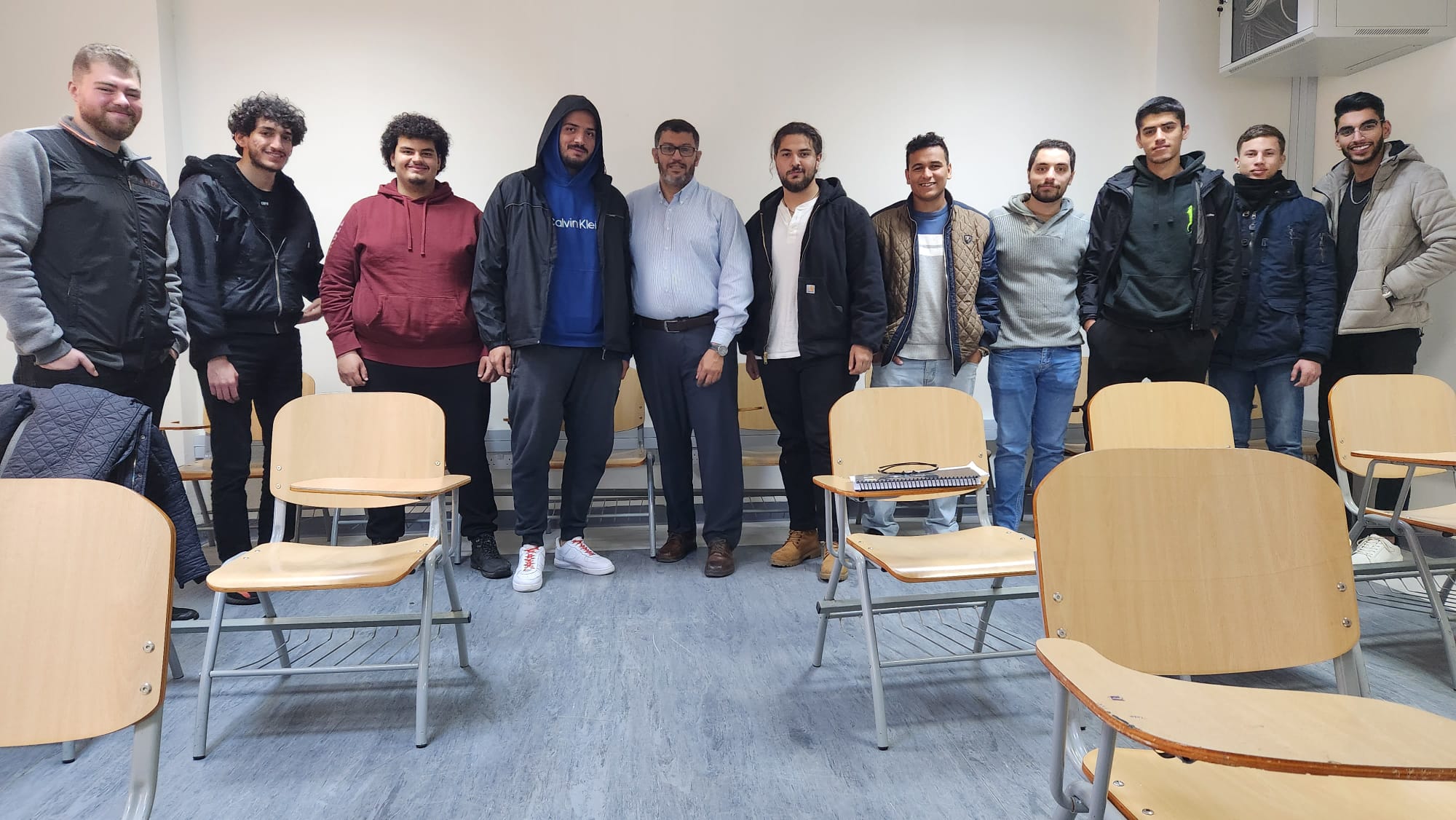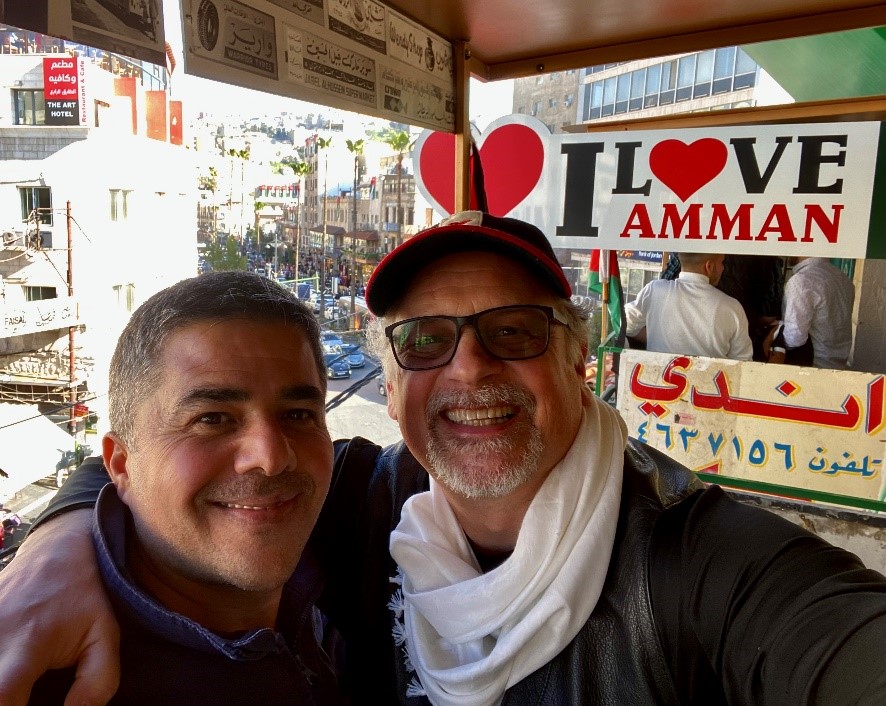All Disciplines
Jordan
Number of recipients
In addition to being a prestigious academic exchange program, the Fulbright Program is designed to expand and strengthen relationships between the people of the United States and citizens of other nations and to promote international understanding and cooperation. To support this mission, Fulbright Scholars may be asked to give public talks, mentor students, and otherwise engage with the host community, in addition to their primary activities.
Host institutions welcome scholars to teach undergraduate or graduate level courses, conduct research, carry out a combination of teaching and research activities, or conduct professional projects.
Researchers are encouraged to present occasional lectures at institutions throughout Jordan. Scholars on a teaching award will be expected to teach two to three classes per semester. Scholars on a teaching and research award will have a ratio of 60% teaching and 40% research.
The Fulbright Program is an exchange program designed to strengthen relationships between the people of the United States and citizens of other nations. It also aims to promote international understanding and cooperation. As a Fulbright Scholar, you will have exciting opportunities to share your expertise through public talks, mentor students, and actively engage with the host community—making a lasting impact while pursuing your professional goals.
Any appropriate Jordanian university or Jordanian institution may serve as a host. The Commission provides a list of contacts and suggested host institutions on its website, but scholars are required to secure their affiliation by the time of application. All host institution affiliations will be confirmed by the Fulbright Commission in Jordan.
Three to ten months
The academic year in Jordan is September through June. Grants may begin in mid-September 2026 or January 2027 (if program is for less than 6 months) but must be completed by July 31, 2027. To facilitate university placements, it is recommended that Grantees start in September. Grantees with September start dates are expected to arrive in Jordan for an in-country orientation, scheduled around Mid-September of 2026. Grantees starting in January will receive an orientation program upon arrival in January.
Projects are sought in all disciplines.
During their grant period, Fulbright U.S. Scholars in the Middle East and North Africa region may apply for a short-term regional travel grant (three to fourteen days) for participation in a variety of activities including faculty and student lectures, graduate or faculty seminars, curriculum development, public lectures, panel presentations, needs assessment, conferences, or some combination thereof.
All applicants must meet the Program eligibility requirements (click to review the requirements).
A letter of invitation is required for a complete application. Host institution affiliations will be confirmed by the Fulbright Commission in Jordan.
Scholars unable to secure an affiliation letter through their own connections or the list provided by the Commission may contact our Rawabit ("Connections") Higher Education Network Project Officer at rawabit.po@fulbright.org.jo for additional support. The Rawabit Officer can provide contacts within the project network; however, availability of connections may vary across fields.
All teaching will be in English unless otherwise specified by the host institution. For research grants, Arabic language proficiency sufficient to complete the research project is necessary. For applicants without Arabic or other applicable language proficiency, feasibility of conducting research in English must be demonstrated in the proposal.
Scholars (Teaching, Teaching/Research, or Research) affiliated with Jordanian universities must provide a scanned copy of their Ph.D. diploma or other terminal degree. In some instances, scanned copies of grantee's Bachelor's and Master's diplomas may be requested. Preference will be given to candidates with at least three years of postdoctoral experience.
- Teaching or Teaching/Research grants: $2,750-$3,000 per month, depending on academic rank.
- Research-only grants: $2,350 per month.
- Monthly Maintenance Allowance (MMA) for all grants: $2,000 per month.
Travel and Arrival Costs: The Commission will directly cover and arrange grantees' one-way airfare to Amman, a four-night hotel stay upon arrival, and transportation from the airport to the hotel.
Relocation Allowance: Grantees will receive a one-time payment of $3,250 for costs associated with relocation from the U.S. to Jordan and within Jordan: excess baggage fees, visa fees, transit costs, local transportation (in the U.S.), return ticket from Jordan to the U.S. at the end of the grant, and any other miscellaneous costs related to establishing a domicile in Jordan. An amount of $1,000 from the settling-in allowance should be set aside by the U.S. scholars with grants of 10 months to cover the costs of health clearance tests, residency and/or work permit fees.
An allowance of $400 per month will be provided for full-time research awards only.
- The Monthly Maintenance Allowance (MMA) may increase up to $700 per month, based on the number of dependents.
- We provide a one-time dependent travel allowance of $2,500.
- Grantees with awards of five to six months in length will receive a one-time payment of $2,500 per qualifying dependent child, and awards of six to 10 months in length will receive a one-time payment of $5,000 per qualifying accompanying dependents in grades 1-12.
Dependents must accompany the grantee for at least 80% of the period abroad and a minimum of one semester in order to qualify for additional dependent benefits. Dependent benefits are not provided to Flex grantees.
Apartment monthly rents, including utilities, generally cost between $1,000-$1,500.
Transportation: Around $250 per month.
Food and grocery shopping: Will vary; a single scholar will pay less than one with a family. Expect to pay more for imported, Western products than local products.
To cover miscellaneous local transportation costs (taxis, ride shares, or rapid transit bus system) the grantee will receive a monthly allowance of $250 per month or its equivalent in Jordanian Dinars.
Final grant amounts will be determined prior to the start of the academic year and are subject to the availability of funds. The United States Department of State and the Fulbright Commission in the host country reserve the right to alter, without notice, participating countries, number of awards and allowances.
Jordan
Living in Jordan can be a very rewarding experience on many different levels. Jordanian culture has Arabic and Islamic elements with substantial Western influence. Its population is diverse because of its strategic location. There are many attractive natural and historic sites and numerous places to explore. Jordanians are known to be gracious and friendly hosts and Jordanian cuisine is delicious, fresh, and varied. The climate is hot and dry in the summer and cooler and wetter in the winter.
The academic year for both universities and schools in Jordan is from September to May/June and is usually divided into two semesters. All schools in Jordan, including public, private, and international schools follow a school calendar set by the Ministry of Education and Ministry of Higher Education and Scientific Research.
U.S. Fulbright grantees to Jordan are highly encouraged to actively expand their professional and academic expertise, engage in meaningful research collaborations with international scholars, build lasting professional and personal networks, and contribute to fostering strong connections between their home and host institutions. Fulbrighters to Jordan should fulfil their agreed terms and conditions of award and carry out the academic program outlined in their original applications.
The Commission provides directories and resources to support the grantees’ efforts towards fulfilling these requirements. The Commission also organizes a volunteering-specific session during grantees' orientation in Jordan. Grantees are also welcome to reach out to program staff for additional guidance and support as needed.
As part of the Fulbright Program in Jordan, grantees are expected to contribute to broadening its impact through volunteering for a minimum of 30 hours over the course of their grant with a CSO/NGO, educational institution, or community initiative. They are also expected to organize and conduct at least three knowledge-sharing initiatives, such as holding a workshop, delivering a public lecture, or publishing content (articles, blogs, social media posts/reels, etc.), to convey their knowledge to the broader public. Scholars are encouraged to document and share their experiences, supporting the program’s mission of cultural exchange, mutual understanding, and community engagement.
The Binational Fulbright Commission in Jordan, officially known as the Jordanian-American Commission for Educational Exchange, is the main point of contact for all Fulbright grantees. Our offices are located in a villa in the quiet residential district of Abdoun in Amman. The Commission serves Jordanian and American students, scholars and professionals, and provides a support network for all Fulbrighters in Jordan.
The Fulbright staff is committed to ensuring that each grantee becomes a member of our Fulbright family and feels that a home-away-from-home is ever present from the day of their arrival in Jordan. The Fulbright staff in Jordan supports incoming Fulbrighters in settling in by conducting an in-country orientation that introduces them to Jordan, familiarizes them with the Fulbright grant requirements, and assists them in identifying housing options. The Commission staff also provide assistance in securing residency and/or work permits, locating medical care, and providing guidance regarding medication needs.
For more information, please visit the following helpful links:
Blog posts from previous Fulbright scholars to Jordan:
- The Fulbright Family by David Tucker
- Taking Full Advantage of Your Fulbright by Casey Allen


Visit our Scholar Directory to view and search all Fulbright alumni. You can also learn more about Fulbright Alumni Ambassadors.

While Arabic proficiency is not required and all teaching will be in English, grantees may occasionally need to use basic Arabic for classroom instructions and student support.